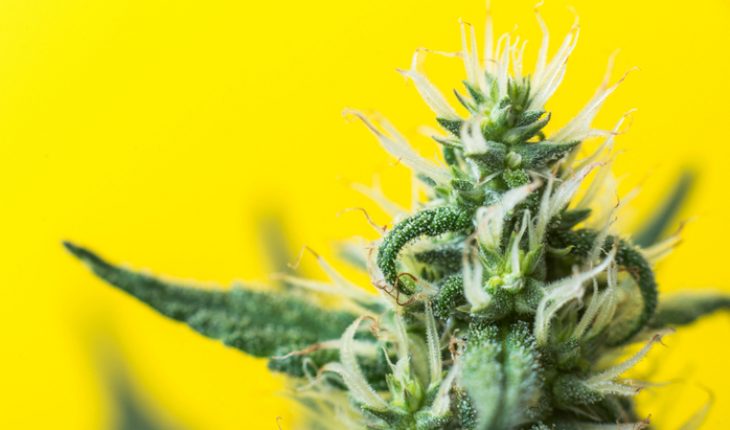Families of children with severe epilepsy and charities are pleading with the UK government to act on its promises for easier access to cannabis-based medicines. The call comes two years after the government legalised access to them following the high-profile campaigns by the families of Alfie Dingley and Billy Caldwell, two boys with intractable epilepsy, during the summer of 2018.
It was hoped that the change in the law would allow more people with severe and treatment-resistant epilepsies like Alfie and Billy to access these products on the NHS. Since the law was changed on 1 November 2018 campaigners believe that only 3 NHS prescriptions for cannabis-based medicines containing both CBD and THC have been written for children with epilepsy – this includes Alfie and Billy.
The lack of NHS prescriptions has left many families of children with intractable epilepsies, who had hoped to access these treatments on the NHS, having to fund their own prescriptions at a cost of thousands of pounds every month. There are also many more families who can’t fund private prescriptions and so don’t have any access at all. Both charity Epilepsy Action and campaign group End Our Pain say this is unacceptable.
After intense pressure from families affected, the Secretary of State for Health and Social Care, Matt Hancock, instructed the NHS to carry out a review of apparent barriers to accessing these products in the health service. The subsequent report[1] published on 8 August 2019 recommended that an ‘alternative study’ (i.e. observational trial) should be set up at pace to enable those families who were currently accessing cannabis-based medicines privately with positive clinical outcomes to obtain them through the NHS with appropriate medical monitoring and supervision.
This commitment to an ‘alternative study’ has seemingly been forgotten in recent months with mention only of full scale Randomised Controlled Trials (RCTs) that are being developed.
Epilepsy Action and End Our Pain welcome these RCTs and would ask the NHS and NIHR (National Institute for Health Research) to ensure these start as soon as possible. However, these trials are not suitable for all including those children who are already benefitting from private prescriptions. This is because they would have to ‘wash out’ from their system, the cannabis-based medicinal products they are taking which are currently proving effective. In the trials, there is also a chance they would be placed onto a placebo. While this is appropriate protocol for studies of this nature, this is not a risk that many families are willing to take. The organisations are calling for the Department of Health and Social Care and NHS England to deliver on their commitment[1] and urgently set up an ‘alternative study’ for this group of people. This would enable these children to access funding for these medicines with appropriate clinical guidance and monitoring.
Simon Wigglesworth, deputy chief executive of Epilepsy Action, said: “The current situation continues to leave many families with desperately ill children in an unbearable position. Many are unable to access these treatments on the NHS, despite evidence that they can be effective and in some cases life-changing. Even more families who had hoped to benefit from the change in the law are unable to afford these treatments at all.
“We’ve been calling for high quality clinical trials since the start of this debate and warmly welcome the progress in this area. In the longer term this is the only way that could bring cannabis-based medicines for epilepsy into mainstream practice.
However, these trials are likely to take time to generate the evidence needed to allow more routine prescribing. The reality is that these children simply don’t have time to wait. Every seizure poses a potentially serious risk and can ultimately be fatal. Some children are having hundreds of seizures every day.
“The government needs to urgently deliver on its promise to provide a way for these children to access funding for medicines which are helping them. They have already waited for two years. They cannot afford to wait any longer.”
Peter Carroll of End Our Pain said: “The law change on 1st Nov was visionary and much welcomed. It offered hope to thousands of patients with a range of conditions and in particular to families caring for a young person suffering with intractable epilepsy. But these hopes have been cruelly dashed. Families have had to resort to paying privately up to £2,000 a month. And now COVID restrictions have curtailed their ability to fundraise. These families are emotionally and financially broken. They have been passed from pillar to post in their quest for an NHS prescription. Everyone in the system seems to be blaming someone else for the failure to help these desperately ill children. We have presented potential solutions, including calling on the Government to set up a special fund to help with the cost of the private prescriptions until the NHS gets its act together and NHS prescribing becomes more routine.”
For further information about cannabis-based medicines and epilepsy, people can visit epilepsy.org.uk/involved/campaigns/cannabis. To find out more about End Our Pain’s campaigning work, visit endourpain.org
and
- Gut microbiome could delay onset of type 1 diabetes - 3rd April 2025
- The da Vinci 5 Robot Is Set To Transform Bariatric Care: - 31st March 2025
- Beyond money: the hidden drivers fuelling child food insecurity - 31st March 2025







While the sale of CBD Oil is now legal, more cannabis-based medicines should start coming into the market. This is a very serious case, and though elders can manage to get some relief in CBD Oils, children cannot handle it on their own, so Government should relieve the rules.